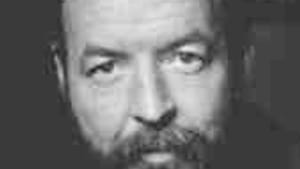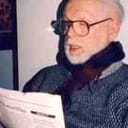Stay in the Loop
BSR publishes on a weekly schedule, with an email newsletter every Wednesday and Thursday morning. There’s no paywall, and subscribing is always free.
Betrayal of the intellectuals: A wake-up call to English professors
Is the English major dying out?

During the Modern Language Association's annual convention, held over Christmas in Philadelphia, the Chronicle of Higher Education published the sad story of a young adjunct college English teacher who couldn't afford the $400 it would have taken him to attend the convention and also interview for a full-time job (Chronicle, Dec. 20).
Earlier at that same convention, the MLA published a report on the dizzying drop in tenure-track jobs. As a Ph.D. who never even had to interview for any academic job, I feel I can talk objectively about the crisis— especially since I walked happily away from 20 years as a full professor with tenure.
All told I spent 30 years in the classroom: After three years teaching junior high and high school in East Lansing, Mich., I got my Ph. D. in 1957 and, with it, a Carnegie post-doctoral fellowship at Penn to create a new course on "The Mass Society" in the Department of American Civilization.
That led in 1959 to a one-year appointment at the new Annenberg School of Communications as assistant professor of media history. Then the sociologist David Riesman recommended me as the first director and associate professor at the new Institute of American Studies at the East West Center of the University of Hawaii. Erwin Steinberg of Carnegie-Mellon then recommended my appointment as full professor and English Department chairman at Beaver College (now Arcadia University), where I taught for 20 years, with two side ventures into temporary fellowships.
In 1982, after my 86-year-old mother died in Detroit, I decided to abandon academe for a second career as a cultural reporter in California. I offer this CV, not to brag but to establish how much different it was for young Ph. D.'s in that era than it is now.
The peons do the work
What wrecked their prospects? In my opinion, the blame lies with the emergence of star professors pocketing $100,000 and more while the workaday assignments increasingly went to "adjuncts" (a fancy professorial synonym for "peon") who lacked tenure or health benefits.
That's a disgrace that will forever shame the humanists who let it happen— indeed planned it. I believed (as I wrote monthly for several years in The English Journal) that the English curriculum had to include the newer media of radio, film and TV to be functional in the 20th Century. It had to identify excellence in the newer media and encourage our best students to cultivate creative careers in those fields. To show what I meant, I organized media events for several years in the '50's and '60s at academic conventions.
Bad year for investors
In 1971 I re-ran a Robert Lowell play on the Vietnamese war as well as a splendid new film on Theodore Roethke by David Meyer. Both were received enthusiastically. So when Meyer asked me to seek MLA member support for a film on Marianne Moore (who had already given him a green light), I wrote to Mike Shugrue, then Number 2 to John Fischer, editor of the MLA's journal. He replied quickly: Our members have had a bad year on the stock market so we can't help. Alas, Ms. Moore died the following year.
When Harvard's Daedalus magazine fielded a conference in the Poconos in 1965 on what the humanist must do vis Ó vis the newer media, all but a very, very few pretended that sneering at mass culture was the way to go. Indeed, the conference ended with the poet Randall Jarrell waggling his beard and index finger at me when I finished my paper and crying, "You're the man of the future, Mr. Hazard— and I'm glad I'm not going to be there." Sadly, he committed suicide a few months later. I say sadly because I had relished teaching his poems.
To be explicit about it, the humanists have been guilty of a massive and absolutely critical trahison des clercs— betrayal of the intellectuals, to those who speak English-only.
American lit, or international lit?
Take a historical perspective: For centuries, to be humanistically educated was to know Latin and Greek. For a half-century after the Civil War, English professors struggled for permission to teach contemporary English literature. We academics didn't start teaching American literature until the late 1920s— and then mostly at the state universities, where ignoring student proclivities was fiscal suicide.
But before I chose a second career as a cultural reporter (it too will add up to 30 years in 2012!), I had started to internationalize my contemporary literature courses. That began with my including works by black Americans and white Appalachians. Then I included Canadian and Caribbean lit written in English— at a splendid seminar with Michael Harper, Seamus Heaney and Rex Nettleford, the so-called Jamaican Thomas Jefferson.
Why not Africa or Australia?
When I taught summers in London I stretched the syllabus to include African lit in English, especially after doing my homework in Senegal at the First Negro Arts Festival in 1966 and the Commonwealth Education Conference in Nigeria in 1968.
Finally we included Oceania, from which the Australian Robert Frost, A.D. Hope, gave a powerful reading. American lit plus Commonwealth lit, I argued, amounts to international English literature— post-McLuhan, with media whenever possible. That rubric guides my exploratory readings to this day.
Wake up, MLA. It's never too late to learn! The great works of the past are surely indispensable, but they're only one part (albeit a crucial part) of our strategy of humanizing the masses. Our first responsibility is to identify the best thought in our generation— that, and assuring that our contemporaries have adequate access to those emerging realities.♦
To read responses, click here.
Earlier at that same convention, the MLA published a report on the dizzying drop in tenure-track jobs. As a Ph.D. who never even had to interview for any academic job, I feel I can talk objectively about the crisis— especially since I walked happily away from 20 years as a full professor with tenure.
All told I spent 30 years in the classroom: After three years teaching junior high and high school in East Lansing, Mich., I got my Ph. D. in 1957 and, with it, a Carnegie post-doctoral fellowship at Penn to create a new course on "The Mass Society" in the Department of American Civilization.
That led in 1959 to a one-year appointment at the new Annenberg School of Communications as assistant professor of media history. Then the sociologist David Riesman recommended me as the first director and associate professor at the new Institute of American Studies at the East West Center of the University of Hawaii. Erwin Steinberg of Carnegie-Mellon then recommended my appointment as full professor and English Department chairman at Beaver College (now Arcadia University), where I taught for 20 years, with two side ventures into temporary fellowships.
In 1982, after my 86-year-old mother died in Detroit, I decided to abandon academe for a second career as a cultural reporter in California. I offer this CV, not to brag but to establish how much different it was for young Ph. D.'s in that era than it is now.
The peons do the work
What wrecked their prospects? In my opinion, the blame lies with the emergence of star professors pocketing $100,000 and more while the workaday assignments increasingly went to "adjuncts" (a fancy professorial synonym for "peon") who lacked tenure or health benefits.
That's a disgrace that will forever shame the humanists who let it happen— indeed planned it. I believed (as I wrote monthly for several years in The English Journal) that the English curriculum had to include the newer media of radio, film and TV to be functional in the 20th Century. It had to identify excellence in the newer media and encourage our best students to cultivate creative careers in those fields. To show what I meant, I organized media events for several years in the '50's and '60s at academic conventions.
Bad year for investors
In 1971 I re-ran a Robert Lowell play on the Vietnamese war as well as a splendid new film on Theodore Roethke by David Meyer. Both were received enthusiastically. So when Meyer asked me to seek MLA member support for a film on Marianne Moore (who had already given him a green light), I wrote to Mike Shugrue, then Number 2 to John Fischer, editor of the MLA's journal. He replied quickly: Our members have had a bad year on the stock market so we can't help. Alas, Ms. Moore died the following year.
When Harvard's Daedalus magazine fielded a conference in the Poconos in 1965 on what the humanist must do vis Ó vis the newer media, all but a very, very few pretended that sneering at mass culture was the way to go. Indeed, the conference ended with the poet Randall Jarrell waggling his beard and index finger at me when I finished my paper and crying, "You're the man of the future, Mr. Hazard— and I'm glad I'm not going to be there." Sadly, he committed suicide a few months later. I say sadly because I had relished teaching his poems.
To be explicit about it, the humanists have been guilty of a massive and absolutely critical trahison des clercs— betrayal of the intellectuals, to those who speak English-only.
American lit, or international lit?
Take a historical perspective: For centuries, to be humanistically educated was to know Latin and Greek. For a half-century after the Civil War, English professors struggled for permission to teach contemporary English literature. We academics didn't start teaching American literature until the late 1920s— and then mostly at the state universities, where ignoring student proclivities was fiscal suicide.
But before I chose a second career as a cultural reporter (it too will add up to 30 years in 2012!), I had started to internationalize my contemporary literature courses. That began with my including works by black Americans and white Appalachians. Then I included Canadian and Caribbean lit written in English— at a splendid seminar with Michael Harper, Seamus Heaney and Rex Nettleford, the so-called Jamaican Thomas Jefferson.
Why not Africa or Australia?
When I taught summers in London I stretched the syllabus to include African lit in English, especially after doing my homework in Senegal at the First Negro Arts Festival in 1966 and the Commonwealth Education Conference in Nigeria in 1968.
Finally we included Oceania, from which the Australian Robert Frost, A.D. Hope, gave a powerful reading. American lit plus Commonwealth lit, I argued, amounts to international English literature— post-McLuhan, with media whenever possible. That rubric guides my exploratory readings to this day.
Wake up, MLA. It's never too late to learn! The great works of the past are surely indispensable, but they're only one part (albeit a crucial part) of our strategy of humanizing the masses. Our first responsibility is to identify the best thought in our generation— that, and assuring that our contemporaries have adequate access to those emerging realities.♦
To read responses, click here.
Sign up for our newsletter
All of the week's new articles, all in one place. Sign up for the free weekly BSR newsletters, and don't miss a conversation.

 Patrick D. Hazard
Patrick D. Hazard